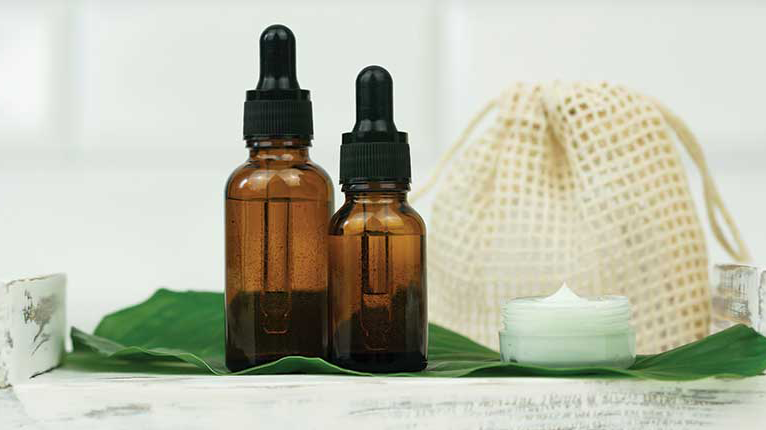The Benefits of Using CBD for Senior Care Management
CBD offers benefits across various age groups, its application holds significant promise in enhancing the well-being of older adults, particularly in the realm of end-of-life care services.

CBD, or cannabidiol, is a compound extracted from the Cannabis sativa plant, commonly known as marijuana or hemp. With over 80 cannabinoids identified in Cannabis sativa, delta-9-tetrahydrocannabinol (THC) stands out as the primary psychoactive substance in marijuana, whereas hemp-derived CBD contains only trace amounts of THC.
The popularity of CBD is skyrocketing, with its therapeutic potential being extensively researched and recognized. While CBD offers benefits across various age groups, its application holds significant promise in enhancing the well-being of older adults, particularly in the realm of end-of-life care services.
Read More: The Benefits of Using CBD for Seniors: A Comprehensive Guide
Explore the Contents
CBD: A Convenient Solution for Seniors
Cannabidiol (CBD) stands out as an appealing option for seniors due to its ease of use and availability in various formats. Among these, CBD oil in tincture form reigns as a popular choice. Its versatility allows seniors to administer drops under the tongue, mix them into food or beverages, or even apply them topically. This simplicity in usage makes CBD drops a favored method for seniors seeking relief from a multitude of ailments. Encouragingly, ongoing research suggests promising therapeutic effects of CBD for addressing common health conditions experienced by seniors. Below are several potential benefits of CBD usage for older adults.
CBD’s Potential in Anxiety Management:
CBD holds promise in aiding anxiety management by potentially altering the response of brain receptors to serotonin, a neurotransmitter closely linked to mental health. Serotonin receptors, which are proteins on cell surfaces, receive chemical signals and facilitate cellular responses to various stimuli.
Findings from a study suggest that individuals with social anxiety disorder experienced an easier time delivering speeches when using CBD. Furthermore, animal research indicates that CBD may mitigate anxiety through several mechanisms, including stress reduction and the attenuation of physiological symptoms like increased heart rate. Additionally, CBD shows potential in alleviating symptoms associated with post-traumatic stress disorder (PTSD) and improving sleep quality among insomnia sufferers.
Enhanced Sleep Quality:
Sleep disturbances and insomnia are widespread among Americans, particularly among seniors, likely stemming from age-related alterations in sleep patterns. Furthermore, seniors often contend with medical conditions and medications that can disrupt sleep.
When seeking solutions for better sleep, including seniors, many individuals turn to sleep medications for relief. While these medications can effectively induce sleep, their prolonged use may engender dependency, addiction, or exacerbate existing sleep problems over time.
Pain Relief:
CBD presents a promising alternative to conventional medications for pain management, offering a natural and potentially safer option. Pain and inflammation are prevalent among older adults, with a substantial portion experiencing chronic conditions. Research suggests that CBD holds significant potential in alleviating pain, with approximately 76% or more of seniors experiencing chronic pain.
Arthritis affects nearly half of the older adult population, and studies suggest that CBD may effectively reduce inflammation and alleviate associated pain. Conditions such as joint pain, various forms of arthritis, and Multiple Sclerosis (MS) have shown improvement with CBD use.
Potential Role of CBD in Neurodegenerative Disease:
CBD holds promise as a potential ally in combatting neurodegenerative diseases, which involve the loss of neurons in various parts of the nervous system, leading to cognitive and motor function decline. Researchers are investigating how CBD may affect brain receptors to aid individuals affected by these disorders, such as Parkinson’s, dementia, and stroke, which progressively deteriorate brain and nerve health.
Another potential benefit of CBD is its ability to reduce inflammation, which can exacerbate symptoms of neurodegenerative diseases. By mitigating inflammation, CBD may contribute to overall health in individuals dealing with these conditions. However, further research and evaluation are essential to fully understand the impact of CBD oil on neurodegenerative diseases. With more studies emerging, CBD could potentially emerge as a significant treatment option in the fight against these debilitating disorders.
Combatting Addiction and Dependence:
In a society where prescription medications are readily dispensed, older adults often find themselves relying on various medications to manage illnesses. While medications have their place, prolonged use can lead to tolerance, addiction, or dependence, diminishing their efficacy and potentially causing harm to the body.
As seniors accumulate prescriptions over time, dependence on medications may become inevitable. However, CBD offers a promising alternative by addressing certain conditions—such as pain—without the accompanying side effects of traditional medications. Moreover, CBD may help mitigate dependencies that stem from prescription drug use.
Transitioning from potentially hazardous pain medications to natural cannabis relief, CBD shows potential in combating relapse and aiding in the withdrawal process.
Read More: The Benefits of CBD for Stress and Anxiety: A Natural Remedy
Conclusion:
Despite the recent surge of interest in CBD and its potential health benefits, scientific research requires considerable time and effort. While the market for CBD products has expanded rapidly, researchers are only beginning to uncover and statistically validate the ways in which cannabinoids can enhance wellness for adults and seniors alike. Nevertheless, CBD shows significant promise in addressing various ailments and conditions.
Before incorporating CBD into their regimen, older adults should consult with their healthcare provider, particularly in the context of end-of-life care services. Their doctor can assess whether CBD treatment is suitable and address any potential interactions or concerns that may arise.





